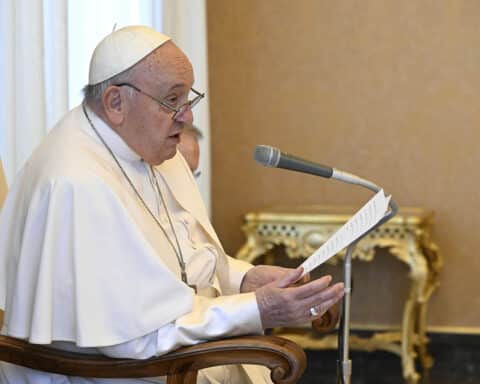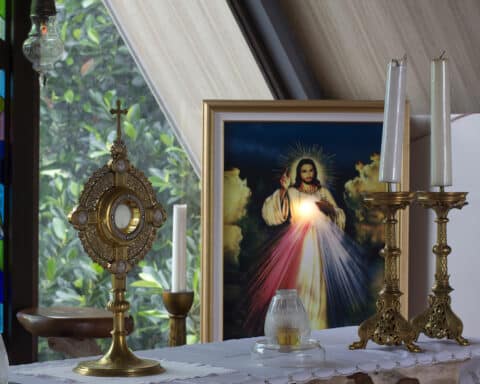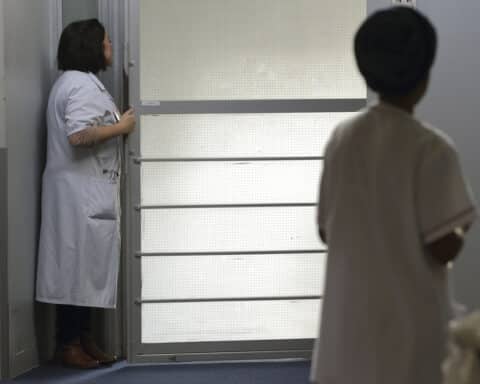“I know that God is the owner of life, but God doesn’t want to see me suffer.”
Those are the words of Martha Sepúlveda, a 51-year-old Catholic from Colombia who, if she had her wishes, would be dead right now.
In 2018, Sepúlveda was diagnosed with amyotrophic lateral sclerosis (ALS, also known as Lou Gehrig’s disease), an incurable disease that attacks nerve cells that control muscles throughout the body. Over the past few years, the disease has progressed, and Sepúlveda has lost muscle control in her legs to the point where she cannot walk without assistance.
Euthanasia has long been legal in Colombia for patients with a terminal diagnosis (defined as a life expectancy of six months or fewer). But a ruling by Colombia’s constitutional court in July ruled that euthanasia should also be available to those with “intense physical or mental suffering from bodily injury or serious and incurable disease.” This ruling paved the way for Sepúlveda to request permission to become the country’s first nonterminal patient to die by legally authorized euthansia — permission that was granted, until it wasn’t.
Sepúlveda’s death date was supposed to be Oct. 10, but a medical committee reviewing her case determined on Oct. 8 that she is not eligible for euthanasia because her illness “does not completely affect the functionality of the patient in instrumental activities or daily life as the patient and her family had expressed in previous medical records,” according to the Washington Post.
Her lawyers are still fighting for her to die. Sadly, so is her 22-year-old son, Federico Redondo Sepúlveda, who said that the ruling to extend his mother’s life “brought my mom back to her previous state of desperation and sadness. … We’re open to having this fight for the dignity of my mother.”
But Martha Sepúlveda’s dignity is the very reason that she deserves to be cared for and loved — not killed. She is a child of God, from whom her dignity was given at the moment she was conceived. And while it is masked by a false sense of compassion, the intentional killing of any human — be it the precious unborn, or a prisoner on death row, or a middle-aged woman suffering from illness — must be opposed. According to the Catechism of the Catholic Church, euthanasia “constitutes a murder gravely contrary to the dignity of the human person and to the respect due to the living God, his Creator. The error of judgment into which one can fall in good faith does not change the nature of this murderous act, which must always be forbidden and excluded” (No. 2277).
In the United States less than 10 years ago, physician-assisted suicide was legal in only two states; now, it is legal in 10, as well as in Washington, D.C. Another 12 states are currently considering legislation that would make assisted suicide legal. Organizations with misleading names — such as Death with Dignity, and Compassion and Choices — are swaying the culture by claiming that it is merciful and compassionate to kill the sick in order to end their suffering, or to allow would-be caregivers to alleviate themselves of having to care for the dying.
In his 1984 apostolic letter Salvifici Doloris, on the Christian meaning of human suffering, Pope St. John Paul II wrote of the value of suffering, saying that suffering, “which is present under so many different forms in our human world, is also present in order to unleash love in the human person” (No. 29). Such was the case with Blessed Chiara Badano, an Italian who died at the age of 18 after suffering from an aggressive form of bone cancer. For almost two years, despite her young age, Chiara bore her pain and discomfort with grace, striving to do the will of God and unite her suffering to that of Christ on the cross. “I suffered a lot,” Chiara said, “but my soul is singing.”
In his Letter to the Romans, St. Paul wrote, “We know that all things work for good for those who love God, who are called according to his purpose” (8:28). Martha Sepúlveda was right when she said, “I know that God is the owner of life, but God doesn’t want to see me suffer.” But Christ’s death on the cross — a death he freely accepted — did not rid the world of suffering; instead, it transformed suffering, giving purpose to our pain.
Blessed Chiara was born on Oct. 29, 1971. This month, she would have celebrated her 50th birthday. Even before her death in 1990, she served as a model of fidelity and faith in the face of suffering. And her witness remains as one the world sorely needs today.
Our Sunday Visitor Editorial Board: Gretchen R. Crowe, Scott P. Richert, Scott Warden, York Young





